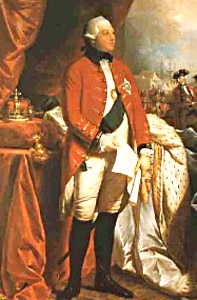 Lord Elgin (1811-1863) was Governor General and Viceroy of India from 1862 to 1863. Born on 20 July 1811, Lord Elgin was educated at Eton and Christ Church at Oxford. He was a British colonial administrator and diplomat, best known as Governor General of the Province of Canada and Viceroy of India. He was the son of the 7th Earl of Elgin and 11th Earl of Kincardine. His second wife was Lady Mary Lambton, daughter of the 1st Earl of Durham, the author of the groundbreaking Report on the Affairs of British North America (1839) and niece of the Colonial Secretary the 3rd Earl Grey. A contemporary and friend of his predecessors, Dalhousie and Canning, he had acquired vast experience in colonial administration as Governor of Jamaica from 1842 to 1846 and Governor General of Canada from 1846 to 1854.
Lord Elgin (1811-1863) was Governor General and Viceroy of India from 1862 to 1863. Born on 20 July 1811, Lord Elgin was educated at Eton and Christ Church at Oxford. He was a British colonial administrator and diplomat, best known as Governor General of the Province of Canada and Viceroy of India. He was the son of the 7th Earl of Elgin and 11th Earl of Kincardine. His second wife was Lady Mary Lambton, daughter of the 1st Earl of Durham, the author of the groundbreaking Report on the Affairs of British North America (1839) and niece of the Colonial Secretary the 3rd Earl Grey. A contemporary and friend of his predecessors, Dalhousie and Canning, he had acquired vast experience in colonial administration as Governor of Jamaica from 1842 to 1846 and Governor General of Canada from 1846 to 1854.
He was one of the most trained Viceroy`s ever appointed by British Government in India. Indian Administration under Lord Elgin furnishes a perfect cross section made in the Government of India at the time when those of the new regime were rapidly superseding the old company methods. He peculiarly gave Anglo-Indian Administration a new orientation. His decisive action during early days of Mutiny, in placing himself and every soldier at disposal of Canning, had greatly helped India at a very critical moment. Elgin`s career in India was cut short by his sudden death after only twenty months of office, mostly carrying on Canning`s work. He spent the summer of 1863 at Shimla and died of heart disease at Darmashala while on tour in upper India and was buried there. The main event of his time was the Ambala campaign in the Northwest frontier to suppress a tribal insurrection there.






































